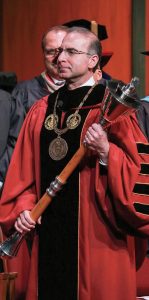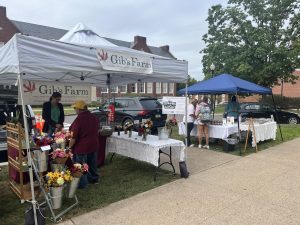Digital Forensics & Cybersecurity: A Powerhouse of a Major
April 23, 2023
The Digital Forensics major is arguably one of the most impactful programs at Bloomsburg University. With around 250 students, the program is a rarity in universities, especially in state schools, which is what makes it such an important major for future generations to learn about and consider.
Although the more common Computer Science major has already been around, Digital Forensics is a relatively newer major that officially started in 2006. Luckily, Bloomsburg University was quick to jump on the opportunity to include this whole new sea of information in their programs.
More specifically, Mathematics professor, Dr. Scott Inch, envisioned much potential for the new ideas and concepts offered by a Digital Forensics degree. In the early 2000’s, Bloomsburg University staff members and faculty were discussing ways to bring unlikely crowds to Bloomsburg. BU, originally a teacher college, wanted to expand their horizons.
Digital Forensics is the application of science and technology to analysis and investigative matters involving technology. Maintaining the integrity and confidentiality of information systems is an important part of entering this type of field, which is why the major was recently renamed “Digital Forensics and Cybersecurity”.
The tools applied through Digital Forensics are typically used to solve crimes and maintain the security of technology, but can also be used in many other ways in our increasingly high-tech society.
There are two clubs open to the general student body at Bloomsburg within this area of academics. The first club is “Digital Forensics Club,” which is where members initiate details of the organization’s two main events, BloomCon, a digital forensics workshop/networking event and Hak4Kidz, an opportunity for children to learn about technology and investigations, the foundations of Digital Forensics and Cybersecurity.
BloomCon draws in well-known professionals of the field, while being a massive recruiting opportunity for students to seek future employers and mentorship from people who know the ropes of taking this road.
“Hak” on the other hand, grants Digital Forensics students the ability to utilize their education to give back to the community. A notable part of being in Digital Forensics Club is the program’s annual trip to GRRCON, a Digital Forensics event in Grand Rapids Michigan.
The second club offered by the Digital Forensics program is the Bloomsburg Cyber Defense Club. This student organization, however, is much more involved due to the competitive nature of the events members attend.
The group travels as a team to hacking competitions where they compete as a team or in two teams against other college teams in a hacker-defender match. They also compete in online competitions, which is not a surprise given the nature of their specialty. Years prior, a BCDC team made it as far as regionals in their endeavors.
Due to their extensive exposure to the roles in this particular major and their active participation in what they want to do, students don’t encounter many surprises when it’s time to enter the fields of digital forensics or cybersecurity.
“Students really like their major and there’s really high job satisfaction,” said Dr. Inch. He also mentioned the financial stability and unlimited positions due to high demands for individuals with digital forensics skills. “Graduates can jump from job to job easily, usually increasing their salary each time.”
Digital Forensics is a growing force and it is very important for people to be aware of how important the complexities of the field are in keeping our technology safe and afloat. Due to Dr. Scott Inch’s dedication, and the other faculty who made the program flourish, Bloomsburg has made an important name for itself in the Cybersecurity and Forensics communities.


















